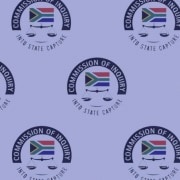|
Getting your Trinity Audio player ready...
|
International consultancy firm Bain & Company has been banned from doing business with the UK government for three years, owing to its part in state capture in South Africa between 2015 and 2018. The ban will apply retrospectively from January this year.
In evidence heard by the state capture commission last year, Bain’s former South Africa director, Vittorio Massone, was alleged to have been instrumental in the capture of the South African Revenue Service (Sars), even meeting and liaising with its commissioner Tom Moyane privately, long before the latter was officially appointed to his position.
Bain’s business with Sars cost the South African government over R160-million in the period noted above, with the first contract having been secured shortly after Moyane had taken office. It was later extended, allegedly without proper processes being followed. Interestingly, according to former Bain senior official turned whistle-blower Athol Williams, Massone knew of Moyane’s impending appointment as commissioner before a recruitment process had even gotten under way. He testified before the commission that early in 2014 Massone had met with former president Jacob Zuma to discuss the potential appointment of Moyane, provided the ANC wins the elections of May that year. Indeed, Moyane took up the position in September 2014.
Massone and Moyane then developed what they called a turnaround strategy for Sars, which Moyane defended during his own testimony as being necessary. What the commission chairperson, Chief Justice Raymond Zondo found in his report, however, was that the revenue service was weakened to align with Moyane’s objective of turning it into one of the country’s captured institutions.
Zondo noted in his report: “Sars was systemically and deliberately weakened, chiefly through the restructuring of its institutional capacity, strategic appointments and dismissals of key individuals, and a pervasive culture of fear and bullying. It is a clear example of state capture.”
Sars experienced an exodus of senior managers over the course of 2015, months after Moyane took office, who were replaced with more pliant officials, Zondo concluded. In this time, Bain was awarded its first contract to contract with Sars, initially for six weeks and at a value of R2.6-million, which was extended irregularly over time and by the time it was terminated had cost Sars around R164-million over 27 months.
“Email communications between Bain and Sars show that there was collusion between the consultants and Sars to get around the procurement process which was required for a valid extension of the original contract,” wrote Zondo. “The commissioner, at this point Mr Moyane, apparently had communications with the people involved in the procurement decision-making. Mr Makwakwa told Bain ‘do not worry’ about the extension because they were ‘going to make a plan’ because the Commissioner had “gone to see” the people in procurement.”
“With the news that Bain has now been debarred by the UK government, essentially for abuse of supply chain management in South Africa,” said procurement law specialist Prof Geo Quinot at a webinar on 4 August, “one critical question that one must ask in this context is why has no South African entity debarred Bain here in South Africa?”
The case of Bain South Africa has also cast the spotlight on the plight of whistle-blowers, who often suffer severe consequences after reporting corruption, with little or no support. Williams, who has fled the country since his testimony before the commission in March 2021, has called for the South African government to follow in the path of the UK and also impose a local ban on the company.
“Do we have an enforcement regime that can allow us to ban an international consulting company as a result of information which has been generated from a commission of inquiry?” said Corruption Watch executive director Karam Singh at the 4 August webinar. “I think that that would be within government’s power.“
Former British MP Lord Peter Hain, who grew up in South Africa, welcomed the ban which followed a process in which he was instrumental, and was quoted in local media as saying it is important for corporates to feel the pain of public sector corruption that they participate in.








